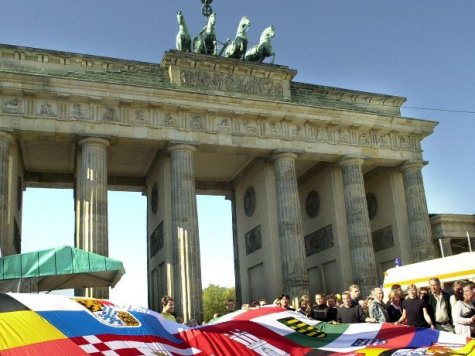A new study by social scientists in Germany has found that tolerance of homosexuality has increased in almost all of Germany’s 16 states, but people remain ambivalent about accepting diversity and are highly sceptical about immigration.
“Even in Bavaria, the least tolerant of the western states in this area, a relatively high number of people agree with the idea that gays and lesbians should be able to lead their lives as they see fit. Acceptance of homosexual lifestyles has increased in the eastern states [the former Communist East Germany] as well, but remains below the national average.”
However, Germans “are less and less likely to approve of foreigners maintaining their traditional way of life in Germany. This decreasing acceptance of cultural diversity seems unfounded, since the study also shows that the German states with the highest percentages of non-Germans also exhibit the greatest levels of social cohesion.”
The study finds that nevertheless German society is more cohesive – meaning “in the areas of social relations, connectedness and focus on the common good” – than it was in the early 1990s: “Germans have, overall, developed a greater sense of community over the last two decades,” the study found.
However the situation in the states of the former Communist east is not as positive: “While people there do have a stronger sense of community than was the case directly after reunification, the gap between the country’s eastern and western regions is greater now than it was 25 years ago.”
“Twenty-five years after the fall of the Berlin Wall, however, the gap between east and west is larger than ever.”
Compared to their counterparts in the west, “more people in the east tend to feel that Germany’s wealth is unfairly distributed. Consequently, more easterners feel the government should take steps to reduce income disparity. This is also reflected in the relatively high levels of dissatisfaction people in eastern Germany express concerning their own standard of living.”
The study found a number of parallels between Germany’s eastern states and other former socialist countries. “The relatively low levels of trust that people in eastern Germany have towards their neighbours is typical of societies that were previously subjected to a significant degree of state control.”
“Trust in one’s fellow citizens is just as valuable as it is fragile. Trust can quickly be destroyed, and rebuilding it takes both time and patience,” says Liz Mohn, vice-chair of the Bertelsmann Stiftung Executive Board.
The study was published this week by the Bertelsmann Foundation, a think tank founded by the late Reinhard Mohn, once a lieutenant in Rommel’s Afrikakorps. He was captured by American troops in 1943 and ended up a prisoner of war in Kansas, where he learned American business practices. He returned to Germany and in the post-war years became a media tycoon.
The study was written by a team of social scientists from Jacobs University in Bremen, a northern industrial city with a large non-ethnic German population, largely Turk.

COMMENTS
Please let us know if you're having issues with commenting.